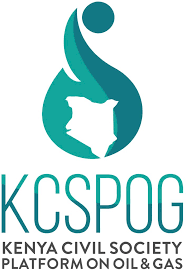Kenya, Tanzania renewed partnership great for regional energy security but transparency concerns linger.
By Emmaqulate Moranga
During President Suluhu Hassan’s recent Kenya visit announcements on joint infrastructure were made which would strengthen the already existing Kenya- Tanzania relationship. A key announcement was the agreement for the development of a gas pipeline from Dar es salaam to Mombasa. The 600-kilometre pipeline is meant for the transportation of liquefied natural gas from Dar es Salaam to Mombasa. The discussion has been ongoing for a while on the construction and during the visit, a Tanzanian businessman lamented the delay, in a similar project in a now viral video.
Regional energy infrastructure is critical in ensuring that resources are shared across borders and reduces costs of replicating similar infrastructure. In the energy transition, a shift to cleaner/less polluting fuels shall inevitably benefit the region’s population. It should in essence also ensure access to cheaper and cleaner energy. The joint agreement also puts Tanzania at the center of a network of crude (the East Africa Crude Oil Pipeline) and gas pipelines.
However, the inking of the deal continues a trend of grandiose statements on agreements but little in terms of disclosure around the agreements.
In illustration Kenya has undertaken several studies on the use of Liquified Natural Gas (LNG) in its market. One option was a floating facility that would include an offshore regasification facility factoring in the possibility that Kenya may have its own reserves of gas in the future or through the importation of LNG from its neighboring countries. The fact that Kenya may acquire reserves requires any such facility to not tie down the country to long contracts that may be unfavorable to a future gas producer. The gas was also to be used to replace the heavy fuel oil used in thermal producers at the coast.
All the above options are with one eye towards delivering cheaper and cleaner energy to the country. The agreement should therefore disclose the proposed landing cost of Tanzanian gas and furthermore the likely impact on the price of electricity.
The Kenyan government, despite clear and binding constitutional obligations on transparency, accountability, public participation and access to information, crucial term and conditions, rights and obligations, contained in contracts for these projects are often treated as state secrets. Perhaps perfect examples are the Standard Gauge Railway (SGR) contracts which, despite constitutional obligations on the State in relation to transparency in public procurement, have never seen the light of day. This is notwithstanding the fact that it is Mwananchi who will bear the heavy economic burden of these projects. In 2020, the Court of Appeal, in Okiya Omtatah Okoiti & 2 others v Attorney General & 4 others [2020] eKLR held that the SGR procurement process was illegal and unconstitutional, partly because it failed to meet the constitutional transparency threshold for public procurement as required under Article 227 of the Constitution.
The second example would be the Turkana oil petroleum contracts between the Government of Kenya, Tullow Oil and its joint venture partners. The Turkana oil project has a crucial public interest component stemming from its environmental and climate change impacts, and provisions on local content and benefit sharing. It has had an intimate impact on the lives of the local communities. This public interest component, and constitutional obligations on the government cannot be tossed away by confidentiality clauses which often dominate contracts for mega projects in this country. Confidentiality clauses in such deals cannot and should not be used as a scapegoat for their non-disclosure.
The intendent Dar es Salaam-Mombasa natural gas pipeline is a matter of public interest. Implementation of the project will have environmental, social and economic impact on the general public, and more so broader public.
Intergovernmental transboundary development projects are unique as they are directly impacting communities at both sides of the border. For the East African Community, the East Africa Community Treaty of 1999 contains obligations that partner States must take into consideration in the implementation of transboundary projects. Such obligations include
transboundary environmental impact and social assessments, emanating from Article 111 to 114 of the Treaty, and Protocol on Environment and Natural Resource Management.
We call upon the Government of Kenya, as required by the Constitution, to publicize the Memorandum of Understanding, in its entirety, in order to allow for informed stakeholder engagement in ensuring that the social, environmental and economic concerns of Kenyans are sufficiently addressed in the Deal, ahead of its implementation. Through informed stakeholder engagement, deals for projects such as the Dar es Salaam – Mombasa Pipeline are scrutinized to ensure transparency and accountability in public investments, and that they indeed are in the interest and for the benefit on Mwanachi.
